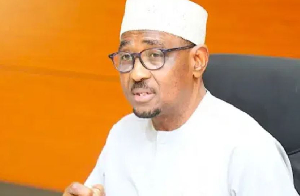Contrary to assertions by the Minister for Gender, Children and Social Protection that majority of the alleged witches at the various camps in the Northern region are reluctant to go back home, overwhelming majority of the them are willing to be reunited with their families.
This is according to Sampson Laar, the project manager of “Presby Go Home”, a Non-Governmental Organisation working at the Gambaga Witch Camp.
Addressing parliament Thursday January 25, 2018, Madam Otiko Afisah Djaba said “We have visited the Gambaga Witch Camp and we’ve put some of them on LEAP and with the new LEAP, what we intend to do is that those who can be reintegrated, the various discussions between the community and the alleged witches will continue to go on.
“However, some of them don’t want to go back to their communities because they feel that anytime something bad happens in the community, they are the first to be accused like when somebody’s child dies or there is any mishap, and, so, because of that we intend with the new LEAP to provide the productive ones with skills training and wherever they want to stay we will support them to be able to live on their own.”
But speaking on Absolute News on Radio Tamale 91.7 FM, Sampson Laar says less than 10 per cent of the alleged witches are unwilling to go home.
“…in Gambaga, I will tell you that less than 10 percent do not want to go home, almost everybody wants to go home. The problem is that any time we are able to settle the cases amicably, the women are very happy to go back home, but if the cases are not settled and you are pushing her to go home how will she express the joy of going home. But I am telling you over 90 per cent are really interested in joining their families if the families are ready to receive them. I’ve worked there and I’m still working there and I’ve interacted with women, just less than 10 percent might not be interested in going home,” he stated.
He said his organization has succeeded in reintegrating more than 80 women back into their communities.
“So far we have sent home over 80 women home and if you want to verify this I will take you round to see these women I’m talking about. So if the notion is that they don’t want to go how are we able to send them home? So people must be honest and let’s see how we can help these women,” he stressed.
According to Mr Laar some of the few women who are unwilling to go back home do not have their immediate relatives alive and may not be accepted by the extended family.
He revealed that the number of alleged witches at the camp is on the rise.
“Let me tell you what happened this January, 11 women have come, 11 women have been accused. The numbers are rising,” he said.
On the intended closure of the camps, Mr Laar says if the teething challenges in the communities are not addressed, reintegrating the women back to their communities will spell doom for them.
The Gambaga Witch Camp is a segregated community located in Gambaga in the Northern Region. It was established in the 18th century to accommodate alleged witches and wizards who are banished from their communities. The camp has about 25 round huts and holds about 100 women.
General News of Friday, 26 January 2018
Source: radiotamale.com













